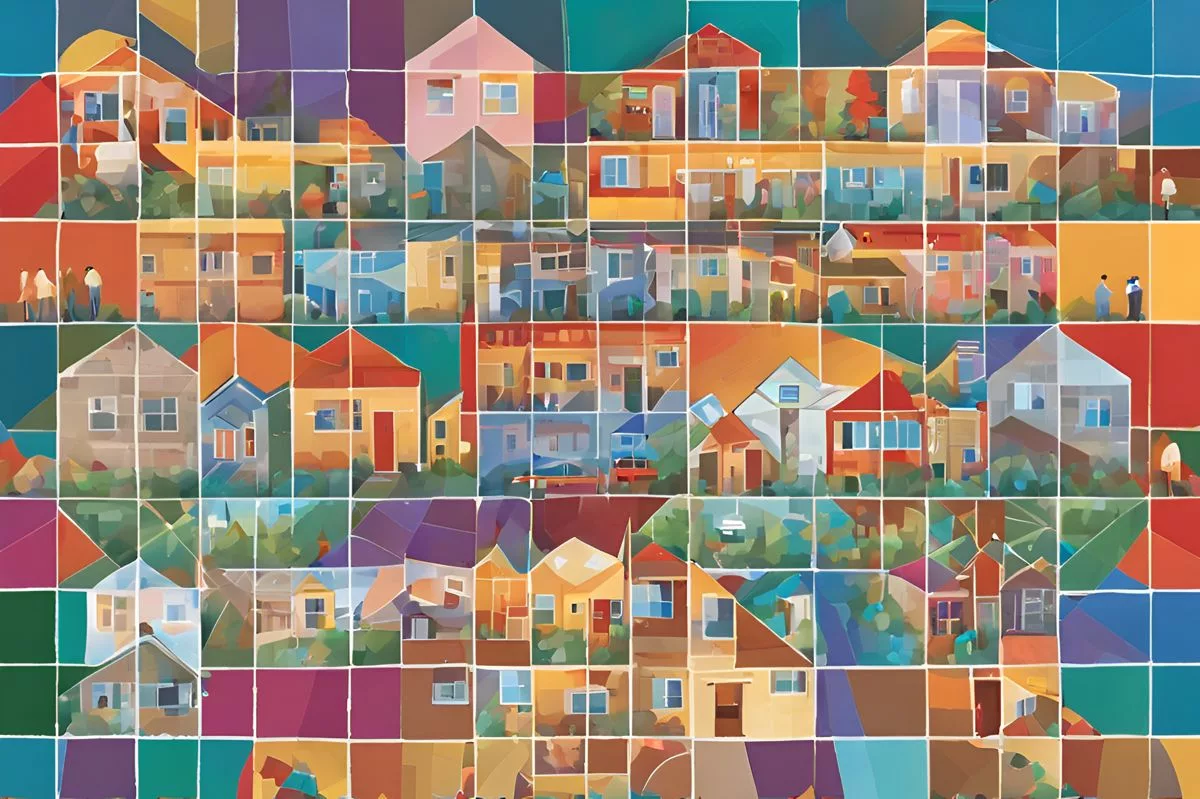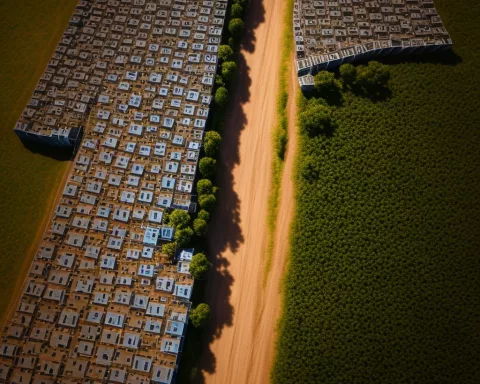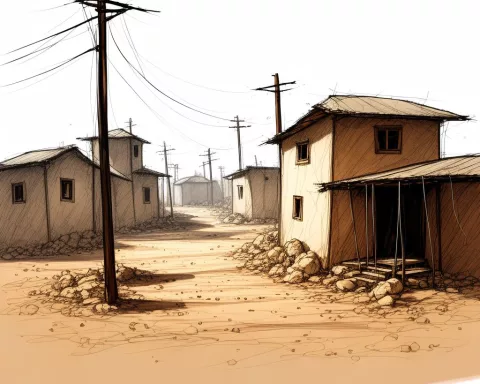In South Africa, open talks between the government and community groups are vital for improving housing. Groups like Abahlali baseMjondolo fight for the rights of people living in shacks, highlighting the urgent need for safer homes and better living conditions. A recent committee visit underscored the importance of teamwork to address housing challenges, showing that cooperation can lead to better infrastructure and services for all. With a focus on fairness and accountability, these efforts aim to create a future where everyone can enjoy safe and dignified housing. The journey is ongoing, but hope shines bright for a united and caring South Africa.
How Can Dialogue Improve Housing in South Africa’s Human Settlements?
Effective dialogue between government bodies and community organizations is crucial for improving housing in South Africa. Key benefits include:
- Enhancing cooperation and addressing community needs
- Promoting accountability and quality in housing projects
- Bridging gaps between formal frameworks and grassroots initiatives
This collaborative approach fosters social justice and sustainable development.
The Power of Dialogue in Human Settlements
In South Africa’s rich socio-political landscape, the interaction between government bodies and community organizations plays a pivotal role in driving progress and transformation. This complex relationship, marked by both cooperation and conflict, significantly influences the development of human settlements across the country. The recent appeal by the Portfolio Committee on Human Settlements for better communication between the KwaZulu-Natal Provincial Department, local municipalities, and the community group Abahlali baseMjondolo highlights this dynamic.
Abahlali baseMjondolo, a key advocate for the rights of shack dwellers, persistently represents those often ignored, focusing on issues such as inadequate housing and the marginalization of informal settlements. Their ongoing efforts emphasize the necessity of addressing these deep-rooted challenges through activism. The committee’s call for improved collaboration illustrates the vital need to bridge gaps between government frameworks and grassroots initiatives. As Mr. Nocks Seabi, Chairperson of the committee, aptly emphasized, effective dispute resolution requires open and candid dialogue.
The committee’s recent activities in KwaZulu-Natal reflect more than just symbolic gestures, serving as crucial steps toward addressing real issues. Among these concerns is the urgent need to provide safe accommodation for the elderly and dispel negative perceptions that have hindered relationships between communities and authorities. The committee identified the uTshani Fund as a promising tool for promoting cooperation and improving housing access for impoverished communities.
Evaluating Housing Projects and Infrastructure
During their visit to housing projects in the eThekwini Metropolitan Municipality, the committee observed the potential for excellence in public works. They were impressed by the quality of the houses, which demonstrated the dedication and expertise of those involved in their construction. However, alongside this praise, the committee pointed out areas needing improvement, reflecting a commitment to ongoing enhancement. Developing bulk infrastructure, including essential services like water, sanitation, and electricity, emerged as a cornerstone of their vision, aligning with constitutional mandates for citizens’ access to necessary services.
The committee also highlighted disparities in housing quality and size across different municipalities, underscoring the need for standardization. This push for uniformity aims to eliminate inconsistencies where some areas produce superior housing with fewer resources, while others achieve less despite greater investments. Emphasizing the importance of hiring competent contractors, the committee seeks to ensure efficiency and accountability, with projects completed on time and within budget.
In these discussions, the City of eThekwini received praise for effectively using the Informal Settlements Upgrading Partnership Grant and the Urban Settlements Development Grant. These grants are vital resources amid increasing internal migration and urban pressures, allowing the city to pioneer new housing development pathways. Mr. Seabi’s remarks highlight the incongruity of unused budgets returning to the National Treasury despite urgent needs, commending eThekwini’s proactive approach in tackling formidable challenges.
A Vision for South Africa’s Future
The committee’s oversight journey, which included visits to projects in KwaMashu and Umlazi, represents a broader narrative of accountability and aspiration. The dream of a brighter future for South Africa’s urban and rural populations depends on these critical engagements, where stakeholders unite to create a shared vision. In this story, history acts as both an anchor and a guide, leading the efforts of those committed to realizing the transformative potential of human settlements.
Collaboration, much like the creation of a masterpiece, demands a careful balance between structure and spontaneity. As the committee works to mend fractured relationships and foster cooperation, they echo the sentiments of artistic movements throughout history that have celebrated unity and collective progress. The modernist ethos of breaking with tradition to forge new paths resonates deeply within the committee’s mission to redefine the parameters of housing development.
While the immediate tasks involve addressing pressing concerns and logistical challenges, the broader implications extend beyond the confines of brick and mortar. These efforts symbolize a commitment to social justice, equity, and the empowerment of historically marginalized communities. By cultivating an environment of open dialogue and collaboration, the committee aims to lay the foundation for a future where everyone has access to safe, dignified, and sustainable housing.
The Ongoing Saga of Human Settlements
In the unfolding narrative of human settlements, the story remains unfinished, with each chapter offering new opportunities for reflection and action. As stakeholders continue to engage in this intricate dance, the lessons of the past will inform future aspirations, paving the way for a South Africa that embraces its diversity and harnesses its collective strength for the betterment of all its people. Through persistent collaboration and innovation, a more equitable and inclusive society is possible, where progress is shared and sustainable solutions become the norm.
“`markdown
What is the significance of dialogue between the government and community groups in South Africa’s housing sector?
Effective dialogue between government bodies and community organizations is crucial for improving housing in South Africa. It enhances cooperation, addresses community needs, promotes accountability, and bridges gaps between formal frameworks and grassroots initiatives, ultimately fostering social justice and sustainable development.
Who is Abahlali baseMjondolo and what role do they play in housing issues?
Abahlali baseMjondolo is a key advocate for the rights of shack dwellers in South Africa. This community group represents those often marginalized, focusing on inadequate housing and the issues faced by informal settlements. Their activism emphasizes the necessity of addressing deep-rooted housing challenges through persistent representation and dialogue with authorities.
What were the outcomes of the recent committee visit to KwaZulu-Natal regarding housing?
During their visit, the committee observed the quality of housing projects in the eThekwini Metropolitan Municipality and identified areas for improvement. They emphasized the need for better infrastructure, such as water and sanitation services, and highlighted disparities in housing quality across municipalities, advocating for standardization and efficiency in housing projects.
How is the uTshani Fund contributing to housing access in impoverished communities?
The uTshani Fund is recognized as a promising tool for promoting cooperation and improving housing access for impoverished communities. It serves as a resource to facilitate partnerships that can lead to better living conditions and infrastructure development, aligning with the committee’s vision of addressing urgent housing needs.
What challenges are faced in the implementation of housing projects in South Africa?
Challenges include disparities in housing quality and size, inefficiencies in project execution, and the issue of unused budgets that return to the National Treasury despite urgent community needs. Additionally, the need for competent contractors and improved collaboration between government and communities is crucial for overcoming these challenges.
What is the long-term vision for housing in South Africa?
The long-term vision is to create a future where everyone has access to safe, dignified, and sustainable housing. This involves fostering open dialogue, cooperation among stakeholders, and a commitment to social justice, equity, and the empowerment of marginalized communities, thereby laying the foundation for a more inclusive and equitable society.
“`












